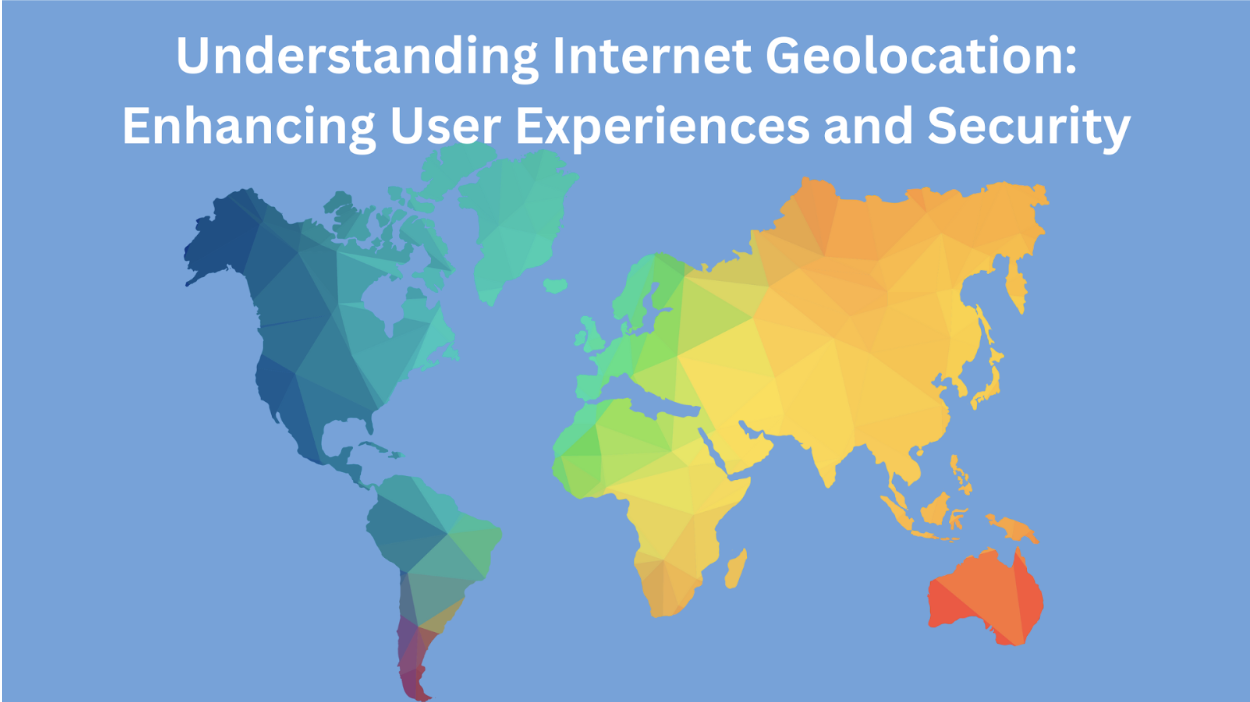In the vast landscape of the internet, knowing a user's location can significantly impact the user experience and security of online interactions. Internet geolocation, the process of determining the geographic location of a device connected to the internet, plays a crucial role in various applications, from targeted advertising to fraud prevention. In this blog post, we'll explore the fundamentals of internet geolocation and its significance for developers and businesses.

What Is Internet Geolocation?
Internet geolocation refers to the technique used to identify the geographic location of a device connected to the Internet. This process involves mapping an IP address to a physical location, which can be as specific as a street address or as general as a country. Geolocation data is typically derived from databases containing mappings of IP addresses to geographic locations.
How Does Internet Geolocation Work?
Internet geolocation relies on various techniques, including IP address geolocation, GPS data, and Wi-Fi positioning.
The most common method involves mapping an IP address to a physical location using databases maintained by organisations such as MaxMind, IP2Location, and Google.
The Importance of Internet Geolocation
For Developers:
- Developers can use geolocation data to personalize content based on a user's location. For example, a weather app can provide local weather forecasts.
- Geolocation can be used to detect and prevent fraudulent activities, such as unauthorized access from suspicious locations.
- Advertisers can use geolocation data to target users based on their location, increasing the effectiveness of their campaigns.
For Businesses:
- Businesses can offer location-based services, such as store locators and localized content, to enhance the user experience.
- Geolocation data can be used for market analysis, helping businesses understand the demographics and preferences of their target audience.
- Businesses can use geolocation data to detect and prevent fraudulent transactions, reducing the risk of financial loss.

Challenges and Considerations
While geolocation technology has advanced, it is not always 100% accurate. Factors such as VPNs and proxies can affect the accuracy of geolocation data.
Geolocation data can reveal sensitive information about users' whereabouts, raising privacy concerns. Developers and businesses must handle this data responsibly and in compliance with regulations such as GDPR.
Conclusion
Internet geolocation is vital in enhancing user experiences, improving security, and enabling innovative location-based services. By understanding the fundamentals of geolocation and its applications, developers and businesses can leverage this technology to create more engaging and secure online experiences for their users.
FAQs
1. How accurate is internet geolocation?
Internet geolocation accuracy can vary depending on the method used and external factors. Generally, it can be accurate up to city-level precision.
2. Can internet geolocation be used to track individuals?
Yes, internet geolocation can track individuals' approximate locations based on their IP addresses. However, it is not always precise and can be affected by factors like VPNs and proxies.
3. What are the privacy implications of internet geolocation?
Internet geolocation raises privacy concerns as it can reveal users' approximate locations. Developers and businesses must handle geolocation data responsibly and in compliance with privacy regulations.
4. How can businesses use internet geolocation for marketing purposes?
Businesses can use internet geolocation for targeted advertising, location-based promotions, and market analysis to better understand their target audience and tailor their marketing strategies accordingly.
5. Are there any limitations to internet geolocation?
Yes, internet geolocation has limitations, including accuracy issues, reliance on IP address mapping databases, and potential challenges in detecting users' locations accurately when using VPNs or proxies.